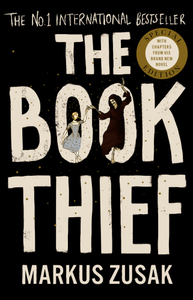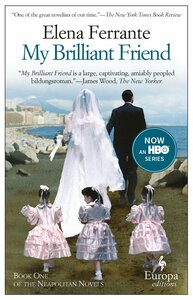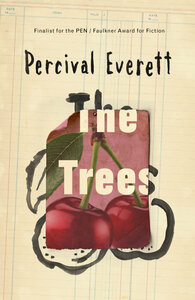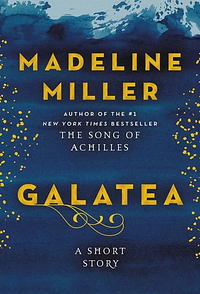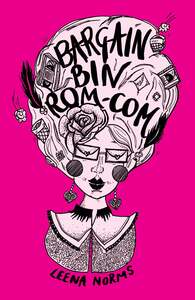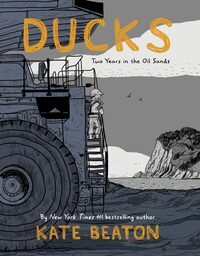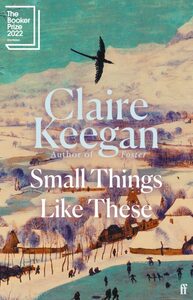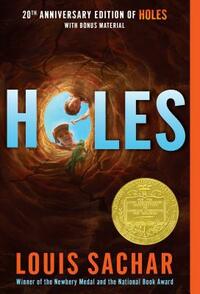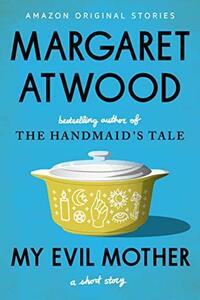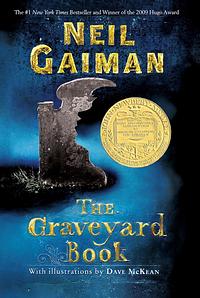You need to sign in or sign up before continuing.
Take a photo of a barcode or cover
dontjudgeabrooke's Reviews (192)
I started this book in March 2023. It's now nearly June 2024, and although I've occasionally mustered the will to trudge through a few more pages of this book over the past 15 months, today my last little bit of will to continue finally evaporated.
As much as I know there's no shame in DNFing and that life is too short to force yourself to finish a book you're not enjoying, I'd heard enough good things from people whose opinions I trust that I thought I had to eventually find something I liked about this… right? Well, that never happened. In fact, I disliked this book nearly as much as I dislike its godawful cover.
But maybe "dislike" is the wrong word. It's more like there was just nothing to like. Despite there being approximately a million characters (none of whom I could keep straight), every single one of them feels cold and totally devoid of charm. I couldn't connect to them at all because they didn't ring true as human beings. I didn't like spending time in this world one bit, which is truly an impressive feat, as Italy has been the #1 destination on my bucket list for years now. Ferrante managed to cast a bleak shadow with no redeeming qualities over a country I adore.
Normally when I've gone a month or two without picking up a certain book, I'll quickly skim over what I've read to get myself back up to speed. But I never did that with this book because I didn't want to spend any more time with it than I had to, and as it turns out, I'm not actually obligated to spend any time with it at all.
Now excuse me while I spend the evening watching The Lizzie McGuire Movie and Stanley Tucci: Searching for Italy to restore some of what this book tarnished.
As much as I know there's no shame in DNFing and that life is too short to force yourself to finish a book you're not enjoying, I'd heard enough good things from people whose opinions I trust that I thought I had to eventually find something I liked about this… right? Well, that never happened. In fact, I disliked this book nearly as much as I dislike its godawful cover.
But maybe "dislike" is the wrong word. It's more like there was just nothing to like. Despite there being approximately a million characters (none of whom I could keep straight), every single one of them feels cold and totally devoid of charm. I couldn't connect to them at all because they didn't ring true as human beings. I didn't like spending time in this world one bit, which is truly an impressive feat, as Italy has been the #1 destination on my bucket list for years now. Ferrante managed to cast a bleak shadow with no redeeming qualities over a country I adore.
Normally when I've gone a month or two without picking up a certain book, I'll quickly skim over what I've read to get myself back up to speed. But I never did that with this book because I didn't want to spend any more time with it than I had to, and as it turns out, I'm not actually obligated to spend any time with it at all.
Now excuse me while I spend the evening watching The Lizzie McGuire Movie and Stanley Tucci: Searching for Italy to restore some of what this book tarnished.
The Best Friend Reading Challenge: A book by an author of a different race
Huh. This one fell flat for me, but it also definitely won't be my last Percival Everett.
To start, my main gripe is that the white supremacists in this book are portrayed grotesque and overly cartoonish. Take this line, for instance, that made me physically wince while listening to it:
“That Hannity is cute,” Fancel said. “If I could get my hand anywhere near my vajayjay, I’d rub me one out just watchin’ him.”
I get that this is supposed to be funny, but I didn't find this brand of Everett's humor funny at all. In fact, I found this to be the novel's biggest issue. I think this type of condescension, painting white American conservatives as drooling buffoons, seriously undermines what Everett is going for. I understand the desire to mock people who've perpetuated hundreds of years of racial violence, but leaning too far into that is to the story's detriment.
These characters are so one-dimensional they don't seem real, and the people involved in these atrocities were/are very real. The insidiousness of these bigots and extremists lies in the fact that they seem like everyone else, not like obviously inept morons. This type of othering doesn't help anyone, and honestly, I think it's dangerous and pretty irresponsible. I guess I want more subtlety in my satire.
On some nit-pickier notes, the details of the murder scenes quickly grew very repetitive. The book itself needed a better editor. Some details were repeated after a few pages like they'd never been mentioned the first time, such asMama Z's father being hanged .
There were also some easy fact-checking errors, like two-way police radios being used in 1913. The lynchings mentioned in the book (I looked up every single one) were only meant to be from 1913 on, but many of them were from long before that. And in one particularly embarrassing blunder, the names of lynching victims were wrong: Brothers Major and Andrew Clark and sisters Maggie and Alma Howze were lynched together in 1918, but the book referred to the victims as "Andrew Clark, Alma Major, and Maggie House."
And on one final kind-of-petty note, I found the audiobook narrator's line reading to be really poor and often confusing in a way that also hurt my experience with the book.
Huh. This one fell flat for me, but it also definitely won't be my last Percival Everett.
To start, my main gripe is that the white supremacists in this book are portrayed grotesque and overly cartoonish. Take this line, for instance, that made me physically wince while listening to it:
“That Hannity is cute,” Fancel said. “If I could get my hand anywhere near my vajayjay, I’d rub me one out just watchin’ him.”
I get that this is supposed to be funny, but I didn't find this brand of Everett's humor funny at all. In fact, I found this to be the novel's biggest issue. I think this type of condescension, painting white American conservatives as drooling buffoons, seriously undermines what Everett is going for. I understand the desire to mock people who've perpetuated hundreds of years of racial violence, but leaning too far into that is to the story's detriment.
These characters are so one-dimensional they don't seem real, and the people involved in these atrocities were/are very real. The insidiousness of these bigots and extremists lies in the fact that they seem like everyone else, not like obviously inept morons. This type of othering doesn't help anyone, and honestly, I think it's dangerous and pretty irresponsible. I guess I want more subtlety in my satire.
On some nit-pickier notes, the details of the murder scenes quickly grew very repetitive. The book itself needed a better editor. Some details were repeated after a few pages like they'd never been mentioned the first time, such as
There were also some easy fact-checking errors, like two-way police radios being used in 1913. The lynchings mentioned in the book (I looked up every single one) were only meant to be from 1913 on, but many of them were from long before that. And in one particularly embarrassing blunder, the names of lynching victims were wrong: Brothers Major and Andrew Clark and sisters Maggie and Alma Howze were lynched together in 1918, but the book referred to the victims as "Andrew Clark, Alma Major, and Maggie House."
And on one final kind-of-petty note, I found the audiobook narrator's line reading to be really poor and often confusing in a way that also hurt my experience with the book.
*Listened to audiobook
I was never a Percy Jackson kid, but it seems like Hadestown and Madeline Miller are doing their darndest to finally get me into Greek mythology. This very short story packs a punch, with an ending so vivid and clever that I've thought about it several times since.
I'm excited to read Miller's other works. (Speaking of which, I saw some news from years ago that she was working on a Persephone book? I hope to god that's still true, because I will be SAT.)
I'm excited to read Miller's other works. (Speaking of which, I saw some news from years ago that she was working on a Persephone book? I hope to god that's still true, because I will be SAT.)
I adore Leena, and I enjoyed several of the poems in this collection. So this is no fault of hers, but I remain unsure whether poetry is my thing. (I'm still trying to make it my thing, though, as the two daily poetry e-newsletters I subscribe to can attest.)
I have a general rule of not rating memoirs, because it feels wrong to rate people on how well I perceive them to have told their own story in the way they wished to tell it.
However, let it be known that this is another example of me really enjoying a well-done graphic novel. It's also one that hit home with me in quite a few ways.
One summer between college semesters, I spent a few weeks working in a Whirlpool plant. I only lasted that long because the work was grueling and they constantly demanded overtime and lengthy weekend shifts at a moment's notice. The plant was notorious for having people simply walk off their lines, never to return. I was constantly exhausted and felt like I didn't have any time to breathe between working and crashing as soon as I got home.
I was in awe of all the older people, especially the older women, who'd worked there for years. How did they have the energy that I, a 21-year-old, didn't seem to have? Where did they find the motivation to show up every day? I once overheard two older female employees (who'd always been kind to my face) bad-mouthing me in the bathroom because I'd shown reluctance when I'd been told, yet again, that I'd be working another full shift on my day off. That was the day I decided to quit.
To me, it seemed as though those people didn't understand they were being mistreated and that they deserved better. Of course I showed reluctance to work on my day off for the third or fourth time in a row. It sucked. But I also understood that many of the people in that plant felt they'd never be able to do better than that job.
Interestingly, in another parallel to Katie's story, my female coworkers also tried to set me up with older male coworkers whom I had no interest in and felt uncomfortable around.
Another similarity I shared with her is being absolutely irate after finding out I'd been financially shortchanged during my entire time with a company (but that was at my first office job after college).
I really appreciated all the commentary on class, much of which I could relate to as well, like the inherent classism in higher education and the fact that often only people from wealthy backgrounds can afford to take unpaid internships or directly enter their chosen fields after graduating.
I cried at some of the kindness of the men around Katie, but unfortunately, I cried because it seemed so rare. At one point Katie and her sister ponder whether other men in their lives would have turned into the same sorts of sexist creeps (or even rapists) as most of the men they worked with if those men had also taken jobs in the oil sands, which I found to be an interesting thought experiment.
In addition to class and misogyny, this book also delves into capitalism, environmental crises, loneliness, isolation, and boredom in really poignant, palpable ways. I also learned more about Canada from this book alone than I think I have in the rest of my life put together, which is pretty shameful as someone who grew up just across Lake Erie in Ohio.
Quotes that spoke to me:
However, let it be known that this is another example of me really enjoying a well-done graphic novel. It's also one that hit home with me in quite a few ways.
One summer between college semesters, I spent a few weeks working in a Whirlpool plant. I only lasted that long because the work was grueling and they constantly demanded overtime and lengthy weekend shifts at a moment's notice. The plant was notorious for having people simply walk off their lines, never to return. I was constantly exhausted and felt like I didn't have any time to breathe between working and crashing as soon as I got home.
I was in awe of all the older people, especially the older women, who'd worked there for years. How did they have the energy that I, a 21-year-old, didn't seem to have? Where did they find the motivation to show up every day? I once overheard two older female employees (who'd always been kind to my face) bad-mouthing me in the bathroom because I'd shown reluctance when I'd been told, yet again, that I'd be working another full shift on my day off. That was the day I decided to quit.
To me, it seemed as though those people didn't understand they were being mistreated and that they deserved better. Of course I showed reluctance to work on my day off for the third or fourth time in a row. It sucked. But I also understood that many of the people in that plant felt they'd never be able to do better than that job.
Interestingly, in another parallel to Katie's story, my female coworkers also tried to set me up with older male coworkers whom I had no interest in and felt uncomfortable around.
Another similarity I shared with her is being absolutely irate after finding out I'd been financially shortchanged during my entire time with a company (but that was at my first office job after college).
I really appreciated all the commentary on class, much of which I could relate to as well, like the inherent classism in higher education and the fact that often only people from wealthy backgrounds can afford to take unpaid internships or directly enter their chosen fields after graduating.
I cried at some of the kindness of the men around Katie, but unfortunately, I cried because it seemed so rare. At one point Katie and her sister ponder whether other men in their lives would have turned into the same sorts of sexist creeps (or even rapists) as most of the men they worked with if those men had also taken jobs in the oil sands, which I found to be an interesting thought experiment.
In addition to class and misogyny, this book also delves into capitalism, environmental crises, loneliness, isolation, and boredom in really poignant, palpable ways. I also learned more about Canada from this book alone than I think I have in the rest of my life put together, which is pretty shameful as someone who grew up just across Lake Erie in Ohio.
Quotes that spoke to me:
- People do things here they wouldn’t do at home. But is that who they really are? Or are they who they are at home?
- To have enough to be generous, that's something. It really is. I never had the money to be generous before.
- I could explode with the dignity I've pushed down for this company that's bursting out now, because I'm leaving and I don't have to push it down anymore.
A great Christmastime read that maintains an air of hopefulness while shedding light on a dark part of Irish history (which I'd somehow, shamefully, known nothing about prior to reading this).
I initially wasn't sure how I'd get on with Keegan's writing, but I ended up really enjoying it for reasons I can't describe any better or more succinctly than these couple of blurbs from the back cover:
"Keegan creates scenes with astonishing clarity and lucidity … [She] makes her moments real — and then she makes them matter." — Colm Tóibín
"Every word is the right word in the right place, and the effect is resonant and deeply moving." — Hilary Mantel
As Mantel also says, this book "asks profound questions about complicity, about the hope and difficulty of change, and the complex nature of restitution." Pretty incredible for a small book like this (wink wink) to contain all that and more while still managing a delightful, warm, and Christmassy tone. Looking forward to reading Keegan's other works in the future.
Quotes that spoke to me:
I initially wasn't sure how I'd get on with Keegan's writing, but I ended up really enjoying it for reasons I can't describe any better or more succinctly than these couple of blurbs from the back cover:
"Keegan creates scenes with astonishing clarity and lucidity … [She] makes her moments real — and then she makes them matter." — Colm Tóibín
"Every word is the right word in the right place, and the effect is resonant and deeply moving." — Hilary Mantel
As Mantel also says, this book "asks profound questions about complicity, about the hope and difficulty of change, and the complex nature of restitution." Pretty incredible for a small book like this (wink wink) to contain all that and more while still managing a delightful, warm, and Christmassy tone. Looking forward to reading Keegan's other works in the future.
Quotes that spoke to me:
- Even while he'd been creaming the butter and sugar, his mind was not so much upon the here and now and on this Sunday nearing Christmas with his wife and daughters so much as on tomorrow and who owed what, and how and when he'd deliver what was ordered and what man he'd leave to which task, and how and where he'd collect what was owed — and before tomorrow was coming to an end, he knew his mind would already be working in much the same way, yet again, over the day that was to follow.
- It was easy to understand why women feared men with their physical strength and lust and social powers, but women, with their canny intuitions, were so much deeper: they could predict what was to come long before it came, dream it overnight, and read your mind.
- He caught a hold of himself and concluded that nothing ever did happen again; to each was given days and chances which wouldn't come back around. And wasn't it sweet to be where you were and let it remind you of the past for once, despite the upset, instead of always looking on into the mechanics of the days and the trouble ahead, which might never come.
- When he reached the yard gate and found the padlock seized with frost, he felt the strain of being alive and wished he had stayed in bed, but he made himself carry on.
- It seemed both proper and at the same time deeply unfair that so much of life was left to chance.
- Furlong looked down at the dark shining river whose surface reflected equal parts of the lighted town. So many things had a way of looking finer, when they were not so close.
- Always, Christmas brought out the best and the worst in people.
- Was there any point in being alive without helping one another? Was it possible to carry on along through all the years, the decades, through an entire life, without once being brave enough to go against what was there and yet call yourself a Christian, and face yourself in the mirror?
Twenty-ish years after first reading this book, it still slaps, y'all.
I've often used Holes as a measuring stick (or a measuring shovel, if you will) for whether or not there's a chance I'll get along with someone. What are their thoughts on the (absolutely perfect) 2003 film adaptation? Did they love it? We're off to a good start. Were they apathetic toward it, or did they just not care for it? Well, that's gonna be tough to come back from. Did they love the movie and read the book? Now we're cooking with gas.
This is quite simply a perfect puzzle of a book. Is the writing style always top-notch? No, it's a little repetitive and stilted at times — but then I don't really expect the writing style in middle grade books to be flawless.
Looking past that, though, I just can't give any fewer than 5 stars for this story. I can't fault it. The way Sachar weaves together storylines from three different time periods is quite possibly more satisfying than anything else I've read or watched to this day.
Also, Kissin' Kate is a total badass. My favorite part of the movie has always been her origin story and watching her rampage all over the Wild West. The tragic ending of her romance with Sam (SAM!!!) was likely one of the very first real "Wow, racism sucks" gut-punches I ever experienced. I remember keenly feeling the injustice of it all as a kid, and no matter how many times I rewatched the movie (which was a lot), I'd still find myself clinging to a Hadestown-esque hope that "maybe it'll turn out this time." Honestly, I don't think it'd be too far-fetched to say that as a kid growing up in a deeply conservative, deeply racist area of rural Ohio, reading the Sam-and-Kate plotline may have been one of the main catalysts for my becoming aware of and working to dismantle my own racism.
Just brilliant. Brilliant from top to bottom. Definitely one of my top recommendations for any young reader (or for readers of any age, for that matter).
I've often used Holes as a measuring stick (or a measuring shovel, if you will) for whether or not there's a chance I'll get along with someone. What are their thoughts on the (absolutely perfect) 2003 film adaptation? Did they love it? We're off to a good start. Were they apathetic toward it, or did they just not care for it? Well, that's gonna be tough to come back from. Did they love the movie and read the book? Now we're cooking with gas.
This is quite simply a perfect puzzle of a book. Is the writing style always top-notch? No, it's a little repetitive and stilted at times — but then I don't really expect the writing style in middle grade books to be flawless.
Looking past that, though, I just can't give any fewer than 5 stars for this story. I can't fault it. The way Sachar weaves together storylines from three different time periods is quite possibly more satisfying than anything else I've read or watched to this day.
Also, Kissin' Kate is a total badass. My favorite part of the movie has always been her origin story and watching her rampage all over the Wild West. The tragic ending of her romance with Sam (SAM!!!) was likely one of the very first real "Wow, racism sucks" gut-punches I ever experienced. I remember keenly feeling the injustice of it all as a kid, and no matter how many times I rewatched the movie (which was a lot), I'd still find myself clinging to a Hadestown-esque hope that "maybe it'll turn out this time." Honestly, I don't think it'd be too far-fetched to say that as a kid growing up in a deeply conservative, deeply racist area of rural Ohio, reading the Sam-and-Kate plotline may have been one of the main catalysts for my becoming aware of and working to dismantle my own racism.
Just brilliant. Brilliant from top to bottom. Definitely one of my top recommendations for any young reader (or for readers of any age, for that matter).
Essentially a gender-swapped Big Fish with witches. Works well as a way to pass the time on an October plane ride, which is how I read it.
Please write more spooky children's books, Neil Gaiman.
(I read this for the first time many years ago, very soon after it was published. This time, I read it out loud with my dog and another loved one. It's a perfect Halloween read. Next up, Coraline.)
(I read this for the first time many years ago, very soon after it was published. This time, I read it out loud with my dog and another loved one. It's a perfect Halloween read. Next up, Coraline.)
